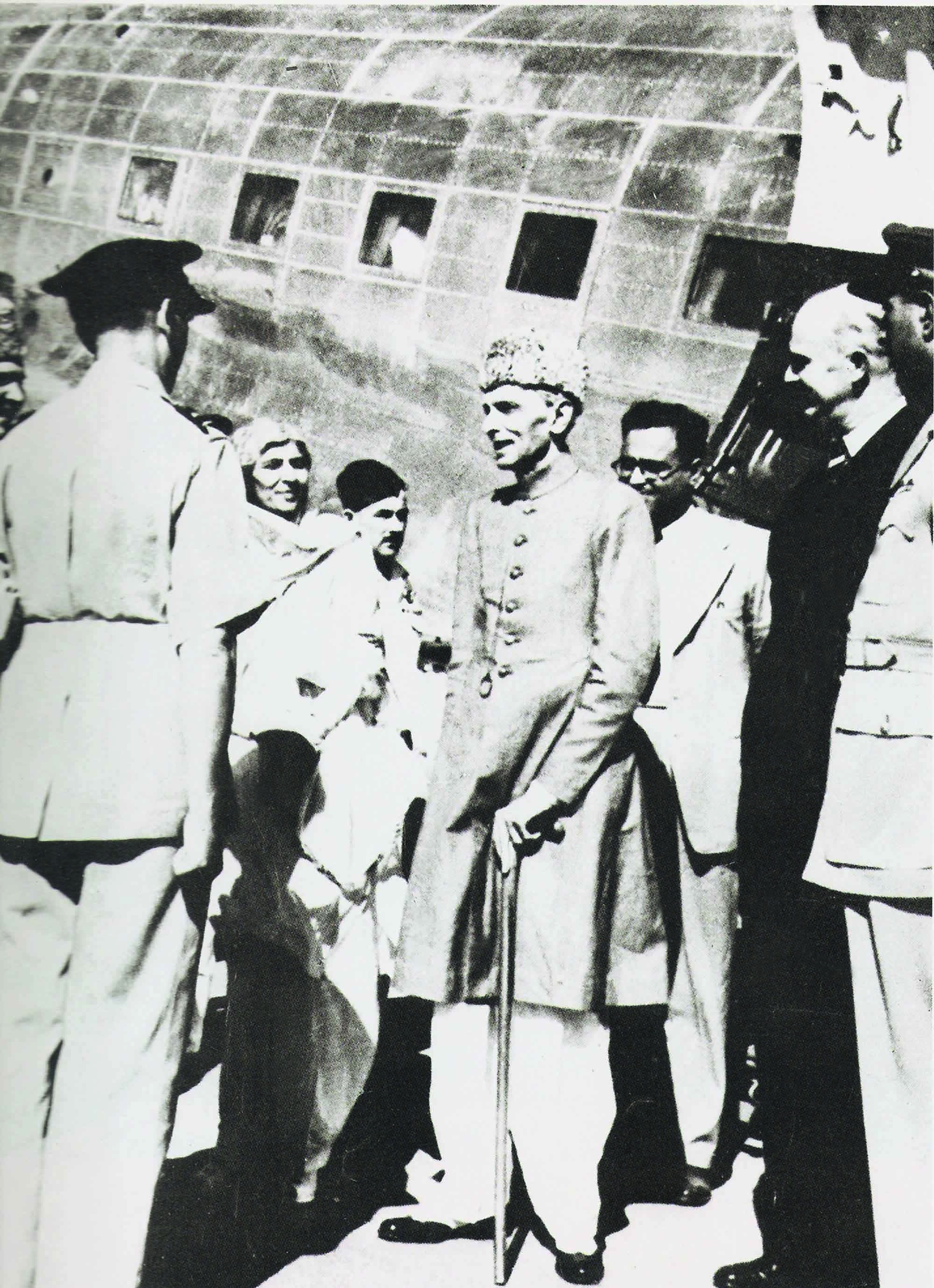
The following are excerpts from five columns by the writer published in Dawn on June 18, 2000, July 2, 2000, July 9, 2000, July 16, 2000 and December 25, 2011.
...Mohammad Ali Jinnah was a proud man, proud for good reason; by the overriding force of his indomitable will, and that alone, he carved out a country for us. Not following the form of his day, Jinnah did not go to jail for a single day, never embarked on a hunger strike, did not encourage rowdy protest marches, he abhorred any form of violence...
“Do your duty and have faith in God. There is no power on earth that can undo Pakistan.”’
This conviction was soon to be proved wrong. His buoyant optimism and his firm certitude in the future of this country clouded his perception of the calibre and character of the leaders who would immediately and later follow him. He failed to conceive that through their lack of ability, lack of integrity, their avarice, their unquenchable greed, their hunger for power, pomp, pelf and position, they would be the undoing of Pakistan.
He was the sole statesman this country has had. Those who followed were small men, narrow of thought... Within a quarter of a century, half of Jinnah’s Pakistan was lost... It is now an overpopulated, illiterate, bankrupt country...
When Jinnah addressed the first constituent assembly of the country on August 11th 1947, he embodied in his speech the core of his philosophy... his vision for the state he had founded. It was a fine piece of rhetoric; too fine, too moral, too democratic, too liberal, too full of justice, too idealistic for the Philistines. This speech...has been subject to distortion; it has inspired fear in successive governments which would have been far happier had it never been delivered...
On August 11th 1947, before the flag of Pakistan had even been unfurled, Jinnah told his people and their future legislators:
“You are free, free to go to your temples, you are free to go to your mosques or to any other places of worship in this State of Pakistan. You may belong to any religion or caste or creed - that has nothing to do with the business of the State.”
That same day, he made it clear to the future legislators and administrators that “the first duty of a government is to maintain law and order...” He told them he would not tolerate the evils of bribery, corruption, black marketeering and “this great evil, the evil of nepotism and jobbery.”
Little did he know that day that these prime evils were to become prerequisites for the survival of the politicians in and out of uniform, and of the administrators of all ranks and grades for the maintenance of their power.
In a way, it was fortunate that Jinnah did not live long enough to see the negation of his principles... A man of high ideals – his disillusion would have been too great to bear...
No set of documents exists which spells out the “ideology of Pakistan”. Thus, every man... is entitled to his own conception of what this ideology is. However, it would be logical to assume that the ideology should rightly spring from what our sole statesman envisaged for the country he created...
There are many who hold that the Objectives Resolution, which came into being a mere six months after [his] death, is the embodiment of the “ideology”.
The Objectives Resolution, the text of which, in English and in Urdu, was embossed on brass plaques and once mounted in the hall of the Supreme Court of Pakistan, has been pronounced by successive democratic and other leaders to be a reminder to us all of the purpose of the creation of Pakistan... But it was not the true English text of the original Objectives Resolution which was sanctified. The plaque gave a modified version of this Resolution. The original stipulated that “adequate provision shall be made for the minorities freely to profess and practise their religions and develop their cultures.” On the plaque, in the English version, the word “freely” was deliberately omitted...
Those alive today who knew Mohammad Ali Jinnah... were well aware of what he wanted. He achieved his ambition and founded for us what he intended to be a democratic, forward-looking, modern, secular state...
In the last 53 years this country has changed its name and status three times. It started as a dominion, which it remained until 1956, when under the constitution promulgated that year, it became the Islamic Republic of Pakistan. In 1962, Field Marshal Ayub Khan, who had abrogated the 1956 Constitution, when he took over in 1958, promulgated his constitution and declared it to be simply the Republic of Pakistan. Then he became a politician... and by his First Constitutional Amendment Order of 1963, we again became the Islamic Republic of Pakistan.
Now to a press conference held by Mohammad Ali Jinnah on July 14, 1947, in New Delhi. I quote relevant portions:
“Q. Could you as Governor General make a brief statement on the minorities’ problem?
A. ...I shall not depart from what I said repeatedly... Minorities to whichever community they may belong, will be safeguarded... There will be no interference of any kind with their freedom of worship... They will be, in all respects, the citizens of Pakistan without any distinction of caste or creed. They will have their rights and privileges and no doubt along with this goes the obligations of citizenship...
Q. Will Pakistan be a secular or theocratic state?
A. You are asking me a question that is absurd. I do not know what a theocratic state means...”
Now to what Mohammad Ali Jinnah had to say on the future constitution of Pakistan, in his broadcast to the American people in February 1948:
“The constitution of Pakistan has yet to be framed... I do not know what the ultimate shape... is going to be, but I am sure that it will be of a democratic type, embodying the essential principles of Islam... Islam and its idealism have taught us democracy. Islam has taught the equality of men, justice and fair play... In any case, Pakistan is not going to be a theocratic state to be ruled by priests with a divine mission...”
For those who wish to interpret it [what Jinnah decreed for Pakistan] their own way, it conforms merely to narrow expedient government vision; and to the bigots and the intolerant who sadly make up the majority of the 180 million, it has been discarded or distorted into wishing what they wish it to mean.
His creed is nationally long gone. ‘Secular’ is almost a treasonous word, tolerance an equally treasonous practice, as bigotry is largely the order of the day. Jinnah’s Pakistan became virtually moribund on his death and received the final fatal blow in 1949 when his trusted lieutenants brought in the Objectives Resolution. From then on, it was a steady downhill dive to where this truncated country now finds itself – isolated and distrusted by much of the world which is concerned about its erratic policies and practices.
This story is part of a series of 16 special reports under the banner of '70 years of Pakistan and Dawn’. Read the report here.


































